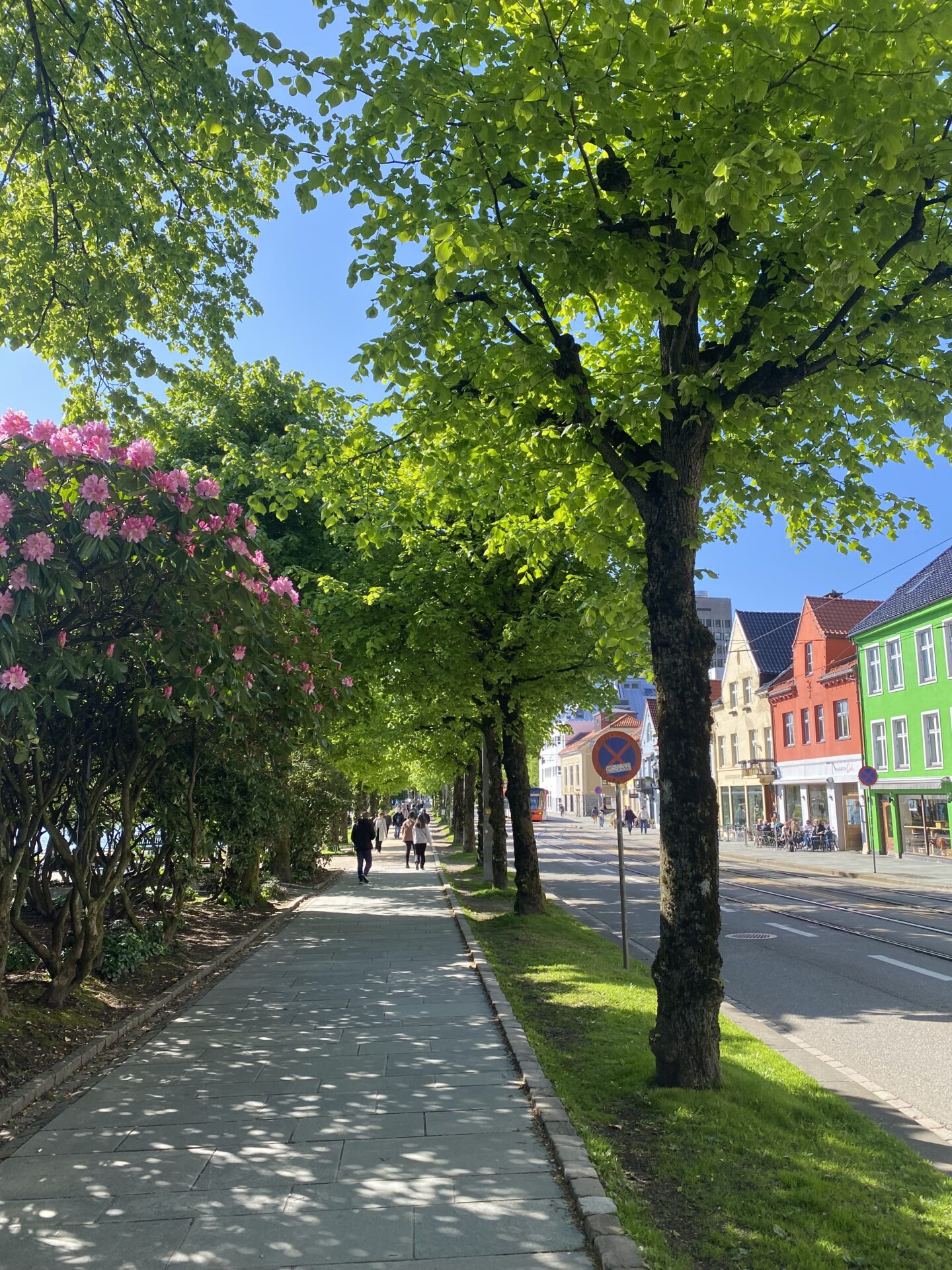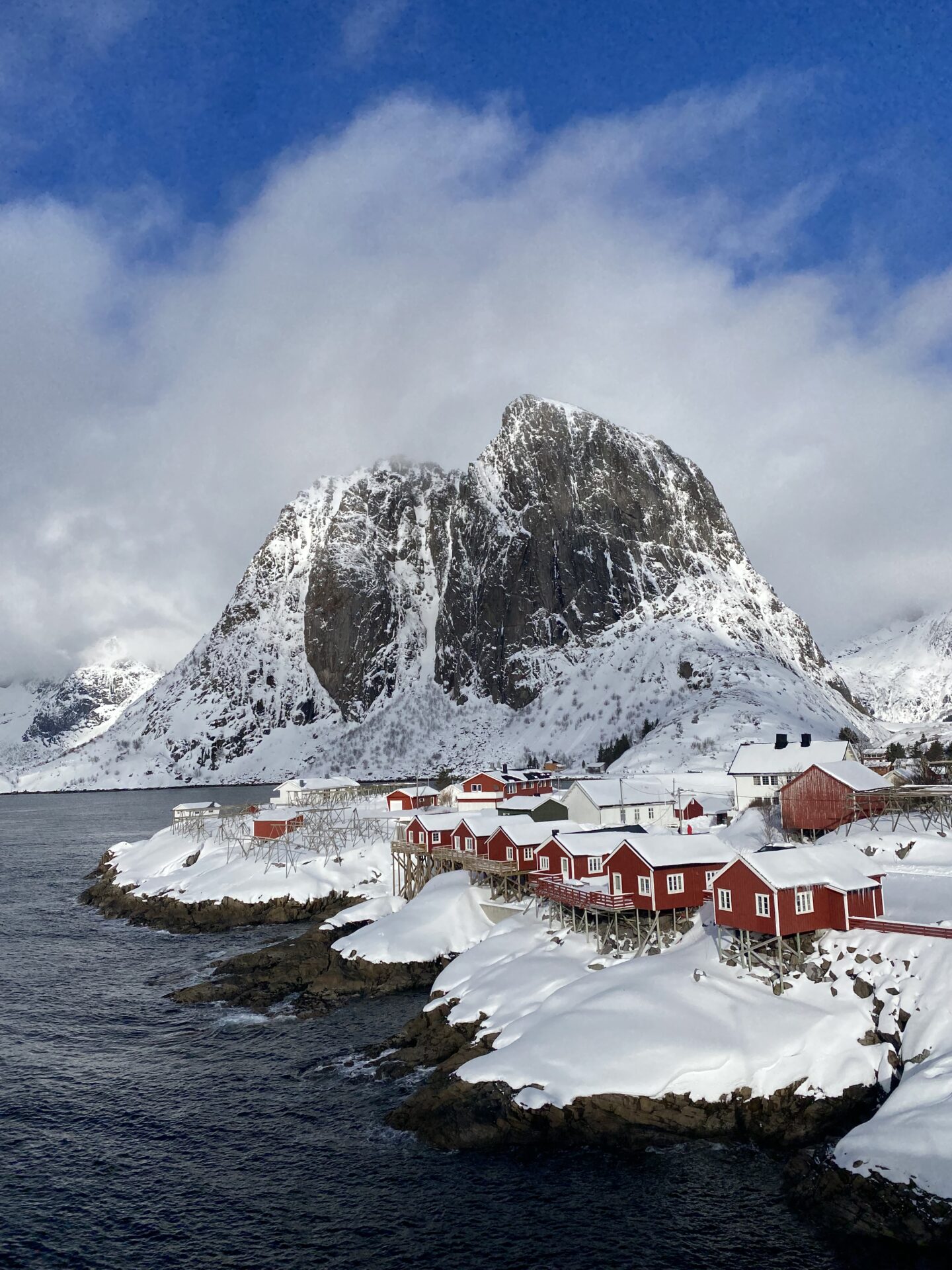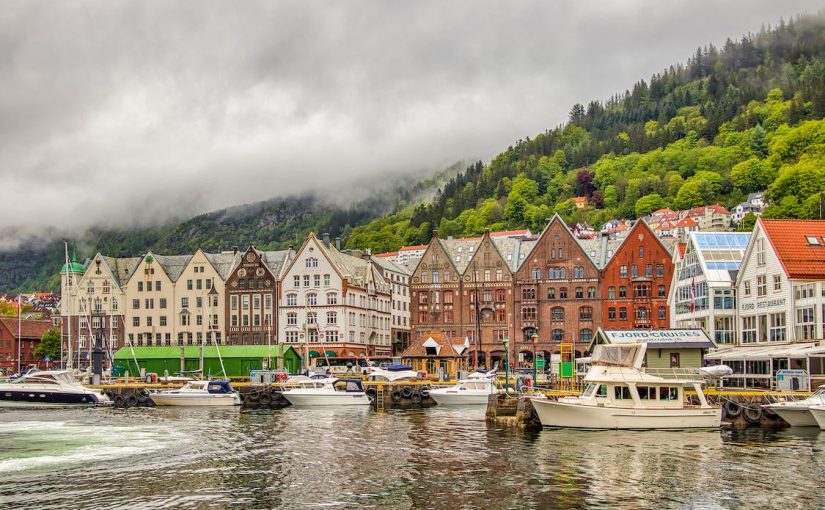Field of study in Wageningen: Nutrition and Health (BVG)
Study period exchange: 05/01/2023 – 05/06/2023
Country (exchange): Norway
City (exchange): Bergen
University (exchange): Bergen University (UiB)
Faculty (exchange): Faculty of Medicine / Faculty of Natural Science
2. Motivation for exchange
Why did you choose to go on study exchange?
I think it is really important to study abroad for your personal development and to broaden your perspective by living in another culture and environment for approximately half a year. It is really nice to discover a (new) country while you are studying at the same time. I think, compared to the WUR, the workload is a bit lower everywhere and you will have time to travel around and make nice trips. You will maybe see a different school system, you meet a lot of new people with different values and norms, you will learn a lot about yourself as you are not with your circle of friends and family from back home and I felt more confident speaking English all the time. Studying abroad is a really nice opportunity during your bachelor and I would everyone encourage to go.
What is the reason you chose for this country/university?
I was really curious about Scandinavia and especially Norway got my attention. The nature is so beautiful and I really wanted something totally different than the Netherlands. Bergen is the second largest city in Norway and it is a very charming city. It has a really cosy city centre and harbor which is surrounded by beautiful nature and the 7 mountains which are very easily accessible for hikes. The University had some really nice nutrition courses I followed as well as the Norwegian Language course as I wanted to learn the language.

Do you have any tips to reach your exchange destination?
I travelled to Bergen by plane. It is actually a very short direct flight (less than 2 hours) departing from Schiphol. From the airport in Bergen I took the “Bybanen”, the light rail, to the city centre. You can just buy a ticket online via the Skyss app and plan your route via the app as well. The lightrail goes direct from the airport to the city centre. I think there is also a possibility to travel by train, boat and bus.
4. University and studying
Could you provide some general information about the followed courses?

How is the study formalized?
The study is formalized in different ways per course. Some have a lot of seminars and group work and other are just lectures only. I described this a bit above, but the examination is in my opinion very different than on the WUR. For example, I had never an oral examination. For a language course is this pretty obvious, but not for food toxicology. I had 1 day of lab exercises which didn’t take long and most of it I knew already, but that can also be the case since I went on exchange in my 4th year instead of the 3rd. Overall the workload is less compared to the WUR. The year is divided in 2 semesters and depending on the courses you take, the dates for the exams vary (no periods like at WUR). However, even though the workload is lower, the level of the exams are more or less the same. When you have to do written exams, they expect that you write everything you know on the topic they ask, almost like a small assay. I was not used to this as at the WUR you have to give specific answers to the questions. The lesson material are very good and the lectures given are sometimes very detailed. I noticed that the bachelor students don’t feel comfortable speaking English and they keep asking question or small presentations in Norwegian which was a bit annoying.

What is the culture of the university?
The lecturers are very approachable and they really want to know if everyone understood what they are teaching. They even give a kind of pep talk before the exam, because it is (apparently) very common among students to feel a lot of pressure trying to get an A. The local students don’t really mix with the international student which was a bit disappointing. They only talked Norwegian all the time. However, this was the total opposite in the global nutrition course where a lot of nationalities were present. This was a master course so is quite logical that they are more engaged.
What does the university offer the student additionally?
I honestly don’t know if they offer sport to the students, but there are a lot of sport centres and gyms by the student welfare organization “Sammen” which is in connection with the university. Sammen also offers help when you need medical support or with housing. Every faculty or university building has a cafeteria/canteen also offered by Sammen.
5. Housing-travelling-living
What are the possibilities for housing?
The possibilities for housing are very high. There are a few buildings from Sammen, one for example is Fantoft, which offers a lot of student studios. You can be allocated in a personal room in a hallway of studio, but in busy semesters there is a possibility that you have to share your room with someone else. You can give them your preferences. I don’t really know the rental prices for that since I signed up for housing offered privately via Finn.no. This is a site where you can find housing which are mostly offered by Norwegian which had my preference. I lived in the city centre with another exchange student and 4 norwegians and I paid around 600 euros per month.

What is the culture of the country like?
The Norwegians are very sporty, It felt like everyone was hiking in the weekends even the older people. Maybe because the stores and supermarkets are closed at Sundays. Here in Norway students love to party, but only in the weekends. They don’t really know the “borrel cultuur”. The Norwegian cuisine includes mashed potatoes as well and they eat a lot of fish. During Christmas they eat “Pinnekjot” which are cooked sheep ribs and Norway is known for their “Lutefisk” which is cod dyed in lye and stock fish. Here in Bergen they have very cute wooden houses in all kind of colors, mainly white with blue doors and shutters which gives a real Scandinavian look. They have amazing nature with a lot of mountains and a very big coast line. It is very normal to take the ferry as transportation. You notice that Norway is a rich country when you walk through the city. They have beautiful building, museums and libraries where they heat every room generously.
Could you give a general price indication of the place of residence compared to living in Wageningen?
Living in Norway is more expensive compared to the Netherlands. The groceries, the housing, eating out and especially alcohol is way more expensive. On the other hand, public transport is cheaper and some activities. But hiking and nature is for free!!!
I think the living costs per month are approximately 1200 euro for housing, groceries, free time, and electricity.

Could you give some information about public transport infrastructure?
I bought a public transport ticket every month for 45 euros. This was really needed to take the bus to university (depends where you live and which faculty you go ofc). It is very easy to purchase it online via the Skyss app. You can make use of the boat, bus and tram with this card, but you need to select a zone where you are traveling in. If you go beyond this zone you have to pay another ticket, but that was never necessary for me. Taxi prices I really have no clue. You can walk to some of the faculty buildings, but the faculty of medicine is outside of the city centre, near the hospital, then you have to use the bus.
6. Free time
What are must-sees in the area?
The must-sees in the area are ofcourse al the 7 mountains surrounding Bergen (Sandviksfjellet, floyen, Ulriken, Lovstakken, Damsgarfjellet and Lyderhorn) which are reachable by bus. There is also another nice mountain to hike a little outside Bergen, called Hananipa, where you can got to by train (20 min from Bergen centre). I really recommend to go to the Lofoten islands and to Tromso. I really enjoyed everything there. I was there in March, when all the mountains and small fishers villages where covered in snow which had kind of a magic look. But if you want to hike, then it is better to go in May/June. Further, I really recommend going to other cities in Norway like Stavanger and Oslo. There is this beautiful train ride from Bergen to Oslo, where the landscapes differ every half hours. You can buy a ticket via “Vy” and it takes approximately 7 hours. The hike to the famous “Preikestolen” is also very beautiful. I did this trip with ESN and everything was very well organized with a lot of fun people. In Bergen there are also a lot of nice museums and ancient buildings to visit. You must definitely eat a reindeer hotdog by the well-known “3-kroner pølse” stand.

What does not appear in the travel guide, but is worth a visit?
I think a lot is covered in the travel guide. But if you have time and money, then I really recommend going on a husky sled somewhere in the north of the country. I did it near Tromso and booked it via “getyourguide”. In Bergen there are some floating sauna’s which is also very nice to do if you like.
Do you have general tips and tricks about leisure time?
There are a lot of coffee places, like Godt brød, lille kaffecompaniet, BKB, where you can enjoy a “kanelbolle” (cinamonbun) or other pasteries as well. For restaurants I really recommend Villani which is an Italian restaurant serving the best pizza’s in town. You can also go to Fiske torget if you like fish and seafood. I personally did not have dinner out that much, because it is expensive but these are the places I really recommend. For going out, I liked Rommet (which is a little hidden in a small street), Bella Notte, Skippertuen (karaoke), Duggfrisk (a lot of Norwegians), Heidis (afterski parties), and I heard Landmark is really nice as well. There is also a studentpub “Kvarteret”, where the beer is the cheapest and they organize parties once a month I think. I really enjoyed casual drinks as well at the terrace in front of Bryggen, Hectors, Ut På, Utidi, and Kvarteret.
7. Challenges & best moment abroad
What was a challenge you have experienced?
I think the biggest challenge at first was to adapt to the short days and shitty weather (I arrived in January) because it is already getting dark at 3;30 PM and a lot of the Norwegian people I lived with had dinner at 4/5 PM. So that was a totally different routine than I was used to. But I was prepared for this so eventually everything will be normalized. Another challenge was to make Norwegian friends. This sounds maybe a little bit stupid, but Norwegian people really respect their own privacy and that of others and are really reserved in the beginning. When you have more and more conversations they will have a more open attitude, but this was for sure something I had to get used to.
What was your best memory abroad?
Aaaah, there are really a lot of nice moments, but during the winter the trip to Tromso and Lofoten was the best memory. And when the weather got better in May, I really loved the trip to Stavanger(city)/Preikestolen(mountain). These were big moments, but I loved all the moments here in Bergen.
8. Contact Details
Would you like to ask Jill more questions about her exchange?
Send her a mail: Jill.arends@wur.nl

